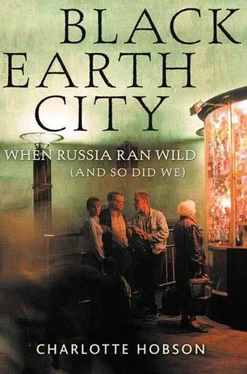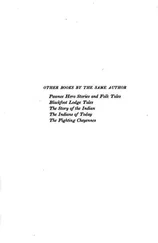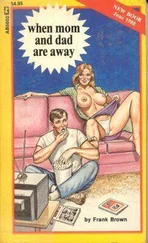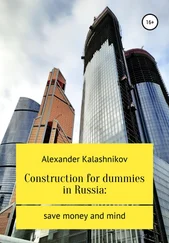In the Soviet Union, invisibility had been their lot. The mad, the handicapped, the homeless and the poor were not suitable participants in the Soviet experiment. How is the perfect society to be formed using imperfect materials? Party officials reasoned, without quite expressing it so bluntly. What’s more, how can our comrades have faith in the society we are building if they are surrounded by half-wits and cripples? Just as we sweep the streets clean of litter for sanitary reasons, so we must ensure that our cities are free of these unfortunate elements.
The segregation began at birth: 95 percent of physically or mentally handicapped babies were removed from their families. Soviet medicine recognized a condition called “oligophrenia” (literally, having a small brain). Children diagnosed as oligophrenics were further classified as “imbeciles,” “idiots,” or as “feeble” and brought up in institutions run by the Ministry of Social Protection, where the exhausted and ill-trained staff did little more than feed them. Conditions were bad, perhaps most of all for those oligophrenic children who, it turned out, had purely physical disabilities but had been removed from their families, housed with the emotionally and mentally disturbed, left to fend for themselves, and grow without stimulation or attention of any kind.
Adults who developed mental illnesses were spirited away to various destinations. Some were put in institutions; many others ended up in and out of prison for antisocial behavior. Others became part of the underground world that inhabited the edges of Soviet life and was rather haphazardly concealed from the rest of society. Before the Olympics in 1980, for example, tramps and alcoholics were picked up from the streets of Moscow and dumped a hundred kilometers away. By the time they got back to the city center, with any luck, all the foreigners would have left.
Lately, however, the streets had begun to change. The underclass was coming out of hiding. An old man in an astrakhan coat and ancient felt boots buttonholed me on Revolution Prospect one day, saying, “You don’t want to wear trousers, dyevushka. That way the devil gets in, understand?”
“But what am I to wear, then?”
“In Central Asia they wear chiffon. Chiffon chuffon. Understand?”
He was one of those who had somehow kept on traveling all over the Soviet Union in the days when others needed a permit for a shopping trip to Moscow. Like Johnson, who came up to Mitya and me one afternoon in Koltsov Square, asking for a cigarette. When we offered him a bottle of beer, he sat down with us and told us something of his life. Tattoos curled and interlocked over his face and his wrinkled, bald head. He had been homeless, a bomzh , for twenty years and more. Summers he spent in the Crimea, where travelers from all over the Union lived in caves and reveled through the hot nights. He’d been in the Far East and in Leningrad, and he’d lived some years in Central Asia, about which he said only that the Asians were good people although they ate nothing but rice, which was why they were so small. For that reason, they’d never rule like the Russians.
The worst times, he told us, were in prison. Johnson rolled back his sleeves and showed us his aging biceps, decorated with chains, guns and a swastika. If either Mitya or I had had any experience of prison, we could have read the markings like a diary. Some showed what his crime was, where he’d served time, and how long. Others revealed his rank in the prison hierarchy and so how much respect he deserved. Johnson pointed out the swastika, which showed he was one of the tough guys. The weakest, he told us, were given tattoos by force. Tattooed teardrops on a man’s cheeks meant that anyone was free to force him into any service. Those men rarely survived.
When Johnson was free, he would stay in a place for a few months, even a year, and then his head would start to torment him. The voices would marshal at his back, and almost without noticing he’d pull on his boots and walk out into the great singing steppe where there was no shelter and not a crust of bread awaiting him. He was wizened and jittery from all his adventures but, he explained, he couldn’t stop himself.
“Those voices chase me out,” he said. “Lord knows why.”
Beggars of all kinds were appearing in the center of town. There were Russians: old women who sat on the icy sidewalk and gaunt men who knelt, faces turned to the ground, holding cards that read, “God have mercy on me, I’m hungry.” Such a thing had not been seen since the famine after the Great Patriotic War. There were Caucasian refugees carrying their babies and repeating the story of their flight from the south; most people brushed past them suspiciously—everyone knew how rich and wily they were, those Caucasians; they passed those babies from hand to hand, poor little mites, to get more money out of the soft-hearted. It was hard to see how they spent all their riches. They were largely Armenians, wearing cloth shoes that they’d patched in several places and living in the railway station. Grief had worn them almost transparent.
There were also Gypsies. I saw a group of Gypsy women burst upon the outdoor market one gray afternoon, shouting to each other and moving quickly among the crowd. They wore layers of raucous scarves and frills, orange petticoats, and pink— red shawls tied around their waists. Gold and sequins flashed from their arms as they elbowed shoppers out of their way. They offered their goods to sell with threats and laughed hoarsely when they were refused. Cursing them, the crowd turned their backs until the Gypsies were gone. All the Russians despised and feared the Gypsies. They’d steal the bread out of your mouth and give you the evil eye afterward. They were not governed by the same laws as normal people; they were the harbingers of chaos. Two Gypsies jumped on my trolleybus one day. “Pregnant woman,” the man shouted, forcing a way for him and his companion toward the seats. “Pregnant woman!” Two old men stood up meekly, while the man and his companion, a blade-thin girl of perhaps sixteen with a jingle of jewelry and kohl-rimmed eyes, took their seats and laughed in their faces. Opposite, a pale, solemn baby in his mother’s arms stared at the couple and burst into furious tears when she tried to turn his face away. I would have gone with the Gypsies if they’d wanted to kidnap me.
I asked some Gypsies once, on a whim, if I could stay the night with them. They were camped on a piece of wasteland out toward the road to Moscow. Mitya and Edik were buying cigarettes. The woman I asked laughed, and said, “Better let me tell your fortune.”
“Let me just sit here and chat, then. We’ll drink tea together.”
She looked dubious. “I’ll have to ask my baron,” she answered at last. “Wait over there, and I’ll find him.”
I joined Mitya and Edik, who looked at me with disgust. “They’re dirty, Charlotte, what do you want with them?”
“Aren’t you afraid of diphtheria? And tuberculosis?”
At last a squat man in stonewashed jeans approached us. “You want to talk to the baron,” he stated flatly. “He’s away. He won’t be here today.”
“Come on, we have to go,” Edik broke in. “What’s interesting about them?” he said, as we got into a taxi. “They’re dangerous.”
And to most Russians, they were. Not just because of their thievery and their diseases but because of the breath of anarchy they released onto the streets. Like devils, they were, come to tempt us.
Anarchy was not new to Voronezh. As a border town, it had been barely controlled by Moscow until the end of the eighteenth century, inhabited by escaped serfs, schismatics fleeing persecution, and smugglers. The Cossacks, who bred their famous horses in the region, acknowledged no authority but their own. As late as 1765, when the bishop of Voronezh visited a village in his diocese, he encountered a procession bearing a beribboned young man—a representation of Yarylo, the god of fertility. The province was, a contemporary lamented, “half-pagan, half-barbarian.”
Читать дальше












